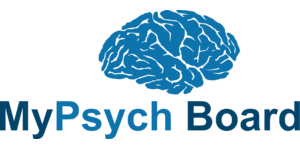Make Your Residency Application POP

Matching a residency program is a stressful and time consuming process. Everyone that applies for a medical license has to undergo at least one year of residency in their medical specialty. And with about 40,000 applicants swarming the 35,000 open positions each year, the competition can be intense.
What’s more, the process can take upward of a YEAR to complete. Sound overwhelming? You’re not alone. We’ve compiled some information here to help you get organized and ready to match with your dream residency in 2024. Because, yes although Matching Day is right around the corner and the process is done for one cohort of students, it’s not too soon for you seniors to start thinking about next year!
Matching Timeline
First off, most people want to know exactly what timeframe they’re working with. Based on the current matching year (calendar from NMRP found here!), the process begins with registration opening in mid-September the year prior. So it makes sense to think, “Ok, that’s when I start applying!” and you wouldn’t be -totally- wrong. This blog post from matcharesident.com has a really great breakdown of when and how to start your application process.
You should really start about 3 to 4 months before registration even opens. This is because you want to take the time to research your programs of choice. You have to apply for and buy your ERAS token through ECFMG. Make sure you’ve taken and gotten your results back from the USMLE Step 2, CK (need a practice question bank? We know a guy 😉
Application Process
Next, you need to actually fill out your application. This can take as long as you need. Just BE SURE NOT TO CERTIFY your application until you are 100% finished with it, have proof read it 20 times, and have made sure it is completely and totally filled in. Ok, maybe not 20 times. You do you, boo.
You need to gather letters of recommendation and write personal statements (one statement for each specialty if you have more than one!). You need to request your USMLE transcript, your medical school transcript, and MSPE. Finally, once you have all your documents and letters uploaded, you’ve got a cute professional picture, and all your applications clean and shiny, you can start submitting them to programs. Lots and lots and lots of programs.
What makes your application special?
What we all want to know: what makes us stand out in a crowd? In this case, it’s a blend of extracurricular activity that aligns with your specialty interests along with an attitude to match. You need to have built a portfolio of volunteer basis work that shows your interest in helping others. But if you have a long list of volunteer work that has no apparent connection to wanting to be a physician or psychiatrist, the committees may see it as someone who doesn’t know what they want to do. It’s all about balance
Another aspect that can make or break an application process is your impression. Going into an interview with a positive, helpful, and caring attitude can be really difficult when you’re sweating bullets and terrified of messing up your opportunity. Be authentic, be open, and let your optimistic little light shine!
And then you wait
Yes. That is the unfortunate truth. You fill out miles of applications and pull together all the documents you need. Then you go sit for interviews (and send Thank You notes afterwards!). And then you rank the programs. Then you wait. Matching is released mid- March (the third Friday) and you will be notified either via email or R3 system.
We want the best match possible for you. We want to see you succeed in your specialty. Give yourself time, start thinking about programs now, and let us help you build your academic experience to be ready to apply. You’ve got this!
